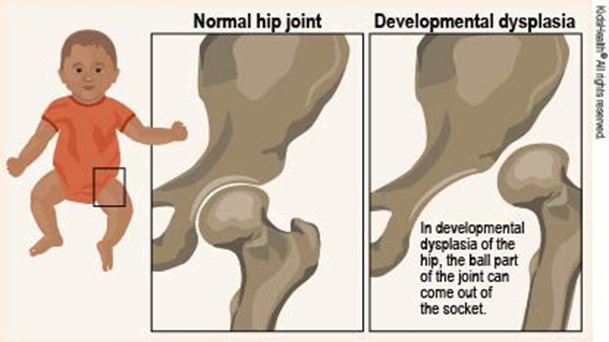A client in her first trimester is concerned about how weight gain will affect her appearance and questions the nurse concerning dietary restrictions.
How much weight gain should the nurse point out will be safe for this client with a low BMI?
15 to 25 pounds (7 to 11 kilograms).
28 to 40 pounds (13 to 18 kilograms).
16 to 30 pounds (7.25 to 14 kilograms).
25 to 35 pounds (11 to 16 kilograms).
The Correct Answer is B
28 to 40 pounds (13 to 18 kilograms).
Women with a low BMI (under 18.5) should gain between 28 to 40 pounds (13 to 18 kilograms) throughout their pregnancy.
Choice A, 15 to 25 pounds (7 to 11 kilograms), is incorrect because it is the recommended weight gain for women who are overweight before pregnancy.
Choice C, 16 to 30 pounds (7.25 to 14 kilograms), is incorrect because it does not fall within the recommended weight gain range for women with a low BMI.
Choice D, 25 to 35 pounds (11 to 16 kilograms), is incorrect because it is the recommended weight gain for women who are at a healthy weight before pregnancy.
Nursing Test Bank
Naxlex Comprehensive Predictor Exams
Related Questions
Correct Answer is C
Explanation
Symmetry of the hips is a normal finding and is not a sign of developmental hip dysplasia.

Choice A is not correct because limited abduction of the affected hip is a sign of developmental hip dysplasia.
Choice B is not correct because it includes all the other choices.
Choice D is not correct because shortening of the femur can be a sign of developmental hip dysplasia.
Correct Answer is B
Explanation
A nurse would recommend having crackers handy at the bedside and eating a few before getting out of bed to alleviate nausea in the early morning for a pregnant woman 1.
Eating foods that don’t aggravate your stomach, such as crackers, can help limit morning sickness.
Choice A is not an answer because eating three well-balanced meals per day and limiting snacks may not help alleviate nausea.
Eating small meals can help limit morning sickness.
Choice C is not an answer because drinking a full glass of fluid at the beginning of each meal may not help alleviate nausea.
Drinking throughout the day, not just when you are thirsty, can help limit morning sickness.
Choice D is not an answer because eating a bland diet and avoiding concentrated sweets may not help alleviate nausea.
Eating foods that don’t aggravate your stomach can help limit morning sickness.
Whether you are a student looking to ace your exams or a practicing nurse seeking to enhance your expertise , our nursing education contents will empower you with the confidence and competence to make a difference in the lives of patients and become a respected leader in the healthcare field.
Visit Naxlex, invest in your future and unlock endless possibilities with our unparalleled nursing education contents today
Report Wrong Answer on the Current Question
Do you disagree with the answer? If yes, what is your expected answer? Explain.
Kindly be descriptive with the issue you are facing.
